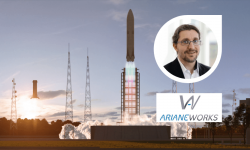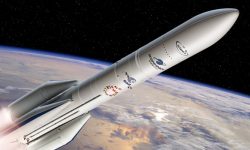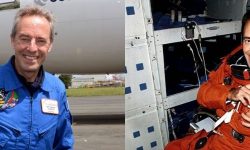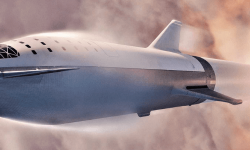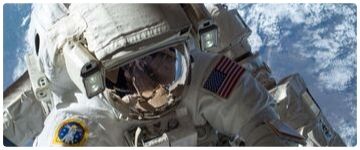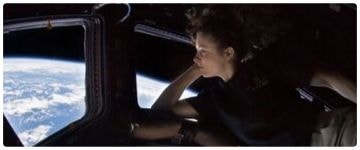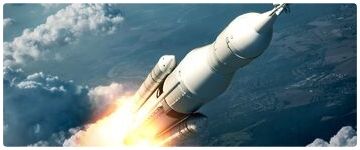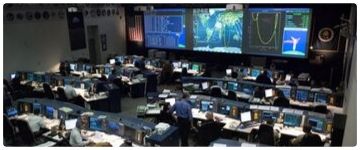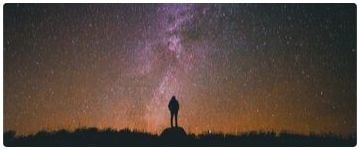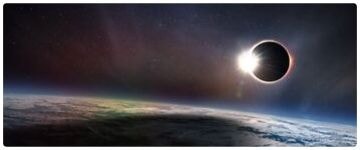
We met Aline Decadi, a french safety and security engineer working for the European Space Agency (ESA) in Paris, as part of the project to develop the future Ariane 6 european launch system. We talked about her career and then we asked questions from the From Space With Love community. Aline’s comments and opinions are her owns and can not be attributed to ESA.
Aline, how was your vocation for space born ?
It would be hard to remember exactly when my attraction for space was born. But I clearly remember the day when I was five years old and I saw Star Wars for the first time. It was episode 4, “A New Hope”. Stars, speed, adventure, highlighting the talents of different characters… I liked this intergalactic space opera and I will always remember it. Since, I have always seen space as a vector of technology, sharing, adventure.
I find it amazing to see that movies have such an impact on people ! Space is increasingly broadcast on television, in commercials as well (for example, astronauts on advertisements for English classes in the Paris metro). Space is now well broadcast and it can cause vocations.
What did you study ?
I studied at an engineering school, ESTACA in Paris (Higher School of Aeronautical Techniques and Automotive Construction). This school is dedicated to transports : automobile, rail, aeronautics, space. I was already interested in space, so I was looking for a space specialty in my studies. So I came to Paris to study at ESTACA, far from the south of France where I grew up. The supervision, the specialties, the resources available, the practical work are of a good level and make it possible to develop and master the necessary skills.

At ESTACA, in addition to specialties, there are several study programs such as Mechanics, Fluids… I studied control / command (design of actuation chains, loop controls to optimize management and performance systems such as engine performance or trajectory optimization, for example). During the first year of engineering school, the students acquire knowledge in all study programs and specialties, and then they choose their study program and specialty. I obtained my engineering degree in the control / command study program and the Space specialty.

In the last year, I went to Canada to study at Polytechnique Montréal. Quebec is francophone but all courses were English spoken. It was a good experience to be immersed in another culture. The courses were much more theoretical than in France, there were very interesting differences like the way to study the notions related to the physics of a phenomenon before studying the application domain of the equations. I learnt a lot. I liked very much the courses about satellite antennas : the goal was to identify its dedicated function towards the satellite, to work on its design, then to choose the most appropriate materials for the antenna.
What about your career ?
I started working 5 years as an engineer in the industry. I wanted to acquire technical expertise and experience in the industrial field to start my career, to see how it really works to manufacture and develop aeronautical equipment. I first worked on the electrical equipment of the Airbus A380 in Toulouse. Customers were Singapore Airlines, Qantas, Air France, Emirates. The first flight was being prepared, it was necessary to bring the electrical equipment to the certification, because it was still in the prototype phase. It was very interesting because it was necessary to work on different systems and scenarios backups / safe in case of failure.

This experience was very important for me because after I worked on the satellites developed by Thales Alenia Space, on behalf of ESTEC (European Space Research and Technology Centre). That’s how I started meeting people who work at ESA. As part of the avionics expertise team, I worked as an engineer on the design of satellite altitude and orbit control equipment for a few years, first on telecommunication satellites, then on Earth observation satellites, then on satellite constellations like Globalstar. This experience helped me build the work method I still use today to determine what is required to certify a system with the specified security level.
Then I wanted to have an international experience. I was recruited by MDA, which made the famous “Canadarm” which equips the International Space Station (ISS). They offered me a job in Vancouver, on the west coast of Canada, where I worked for two years as an engineer on the design of the systems constituting the entire satellite (platform and payload). I attended meetings with space agencies developing the Zenit launcher to discuss interface specifications between the launcher and the satellite. In particular, I was in charge of identifying the cases of failure between the launcher and the satellite during the phases of integration with the ground and during operations in flight, to deduce axes of improvement to make robust the whole system. This experience allowed me to be in touch with the launchers world for the first time.
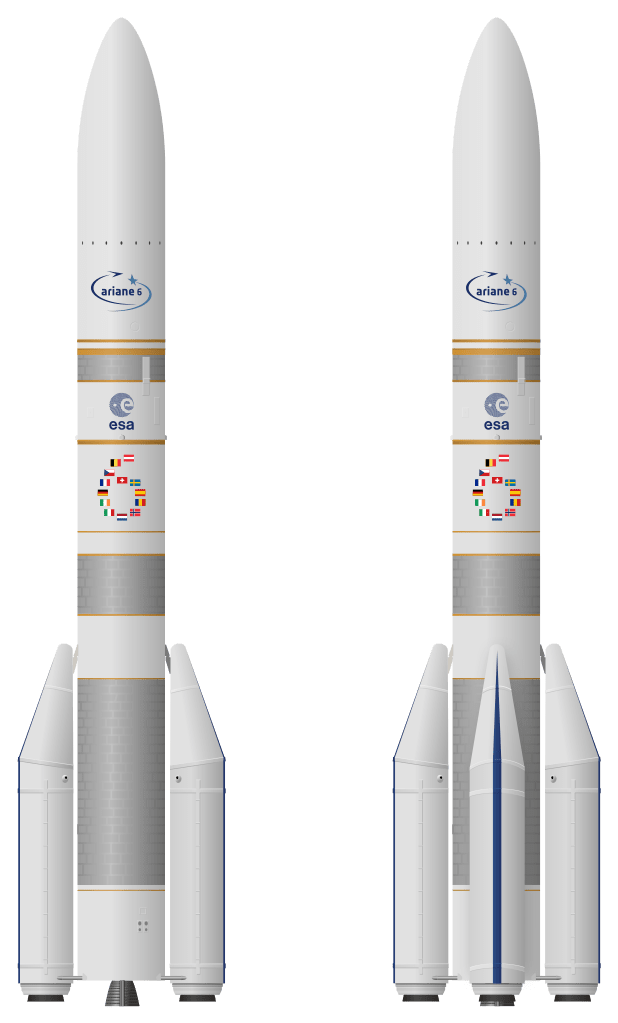
Thanks to these experiences, I was contacted by a company exclusively recruiting in the space sector, HE Space, which is my employer today and which allows me to work on mission at ESA. I returned to France almost 7 years ago to work in Paris as a safety and security engineer.
I started on the Ariane 5 ME project (Midlife Evolution), which was at that time supposed to be the Ariane 5 successor. The project stopped during the critical review phase of the design because the ESA member states made the decision to launch Ariane 6. So I naturally switched to the Ariane 6 project, the same team was rebuilt.
My work as a safety engineer on Ariane 6 focuses on the optimization and robustness of the interfaces (mechanical, electrical, fluid) between the launcher and the ground means. We are currently preparing the critical design review. The first launch is scheduled for July 16, 2020.
Do you have associative commitments ?
I am an active member of the Association Planète Mars (APM) for 1 year and a half. A few months ago, I was appointed executive secretary and communication officer by the president of the association. This also includes the responsibility of recruiting new members. I have also prepared a survey that I will put online soon : the goal is to generate new ideas, to offer different ways to be involved in the association, according to the desires and motivations of each one.
The planet Mars interests more and more people : our association aims to promote the development of technologies enabling humans to explore the red planet. In addition, it can represent European initiatives related to martian exploration. Not many associations produce as many research articles and videos, produced by association members. It’s a gold mine to exploit, and I’m very proud and honored to be part of it !

I am also involved in the Austrian Space Forum (OeWF), which organized the “AMADEE-18” martian simulation I participated in. The APM has been working for many years with the OeWF because it is an excellent application complement for the APM. I made several videos during the 4 weeks of martian simulation in the desert of Oman to share this adventure with my family, my friends, APM / OeWF members and to people who want to know about conducting scientific experiments in an Mars-like environment. Click here to see my videos of the AMADEE-18 martian simulation.
I also want to talk about the Space Generation Advisory Council (SGAC). It is an international association that brings together young professionals interested in the space sector, but who do not necessarily work in the space sector. The SGAC informs about jobs in the space sector, informs about grants to attend conferences, and it puts online offers to participate to working groups on specific issues (for example on space exploration, on space law, on micro launchers, etc.).
This is perfect to learn, thanks to the commitment of coaches who follow the members. In particular, I gave a lecture on martian exploration with young people from SGAC at the last Paris Air Show. At the Observatoire de Paris, astrophysicists told us about the installation of radio telescopes on the Moon and young SGAC engineers presented, with the constraints they identify, various concepts and implementations of transport systems to bring this material on the Moon. It was a very good opportunity to see high-profile experts interact with engineers, to confront their ideas and points of view.
Your questions to a space engineer
What are the main tasks / occupations of a space engineer ? What studies lead to this job ? (Durandile on reddit)
My job is to make breakdown simulations. I introduce breakdowns on a system : a leak, electrical problems that cause fire or a mechanical problem that could lead to the explosion of the launcher. I try to make the system robust by adding safety barriers to these systems during ground operations and even at the beginning of the flight. There is a simulation part with tools, and a risk analysis part of these breakdown cases. This leads to specifications, development constraints that ArianeGroup or CNES are asked to take into account in the design, or implementation constraints to be taken into account during ground integration operations.
I work on the interfaces between the ground and the launcher, which includes the arms that feed and drain the launcher, the electrical interface, the power generation, the maintenance of pressure in the tanks… For its part, Arianegroup simulates internal breakdowns of its launcher. CNES does the same for ground assets (tools, buildings, etc.).
To summarize, I am currenly carrying out design analysis, sizing, integration of equipments and systems. Next year, we will enter the qualification and testing phase of these systems that combine the launcher interfaces with the associated ground assets. This phase will be concrete and will validate the design choices. It’s going to be very rewarding and very intense. The first launch of Ariane 6 is scheduled for July 16, 2020, this date is fast approaching !
What is your pace of work ? Is it always more thant 50 hours work weeks ? How do you handle the stress ? (HowlingPantherWolf on reddit)
We have a dense and sustained pace of work. People who work a lot often do more than 50 hours of work per week, but it is much easier to spend hours working on a project as interesting as the Ariane 6 launch system for example than on a less interesting project.
As a space engineer, pressure could be a work environment that changes and evolves on a daily basis : it requires to remain flexible in all circumstances. Priorities can change regularly and this is part of the job. Being at the heart of a project as important as developing a new launching system involves seeing each change as a new opportunity to learn, rather than being constrained and turned into stress. I work on each subject one by one, step by step, not to let me overflow and it goes well.
As a high school student, what are the best things to do to get into a career in aerospace ? (AndrewIsANerd on reddit)
I advise you to do practical work, discovery courses (even short), or go to open days. Meet people who are already working in the aerospace sector to ask them your questions. This can allow you to study a few specific topics, and find out if it’s only a focus or an emerging passion.
I study in high school, how can I work at ESA ? (lazyfck on reddit)
I think the ideal is to develop a passion for one of the pillars of ESA : space transports, Earth observation, navigation systems, robotic and human space exploration, planetary protection, future technologies. This is the same advice I would give to be an interesting candidate for any company, you have to learn about what the company does. At ESA, there are also other careers such as translation, strategy … But I do not work on recruitment at ESA !
As a student wishing to work at ESA, what kind of advice could you give me ? What does your daily life look like ? (rdiaz300 on reddit)
It would be interesting to choose an engineering school to target your preferred sector : control / commands, mechanical or fluid modeling, electrical systems, mechatronics… Personally, I chose the ESTACA in Paris because this school gives the possibility to study all these aspects with practical work and many possible applications (including within the associations of the school), and then allows to specialize.
What value does ESA or other European space entities give to specialized “Space Engineering” master programs, such as those offered by TU Delft or TU Berlin, compared to a more typical master’s program such as mechanical engineering or aerospace ? And what advice would you give to a young graduate looking to work into the space industry ? (fron on reddit)
Sorry, I can not answer that question instead of ESA.
Have you ever suffered from the impostor syndrome in your path to your current position ? If so, what helped you overcome these moments ? (PapaEuclid on reddit)
When you take a position or when you are asked about a project where your expertise is more limited than other more experienced people, you can feel this type of feeling because you leave your confort zone. But it is also the best way to learn to develop your expertise, for example by calling on more experienced people to benefit from their advice.
For me, when we are not confident we must be very methodical, treat the subject as a whole, that is to say from the general issue and then dissect the issue and extract the real unknown areas (because often the mass of information or work can be confusing). It is necessary to work step by step. The pressure often comes from the fact that we do not know when we will find the solution. So do not give up. It’s endurance, like when you run a marathon. And what’s more rewarding than solving a problem after facing difficulties ?
Read also : “Participate in a Mars simulation” Aline Decadi tells her participation in the AMADEE-18 martian simulation.
Ariane 5 image by DLR German Aerospace Center [CC BY 2.0 (https://creativecommons.org/licenses/by/2.0)], via Wikimedia Commons
